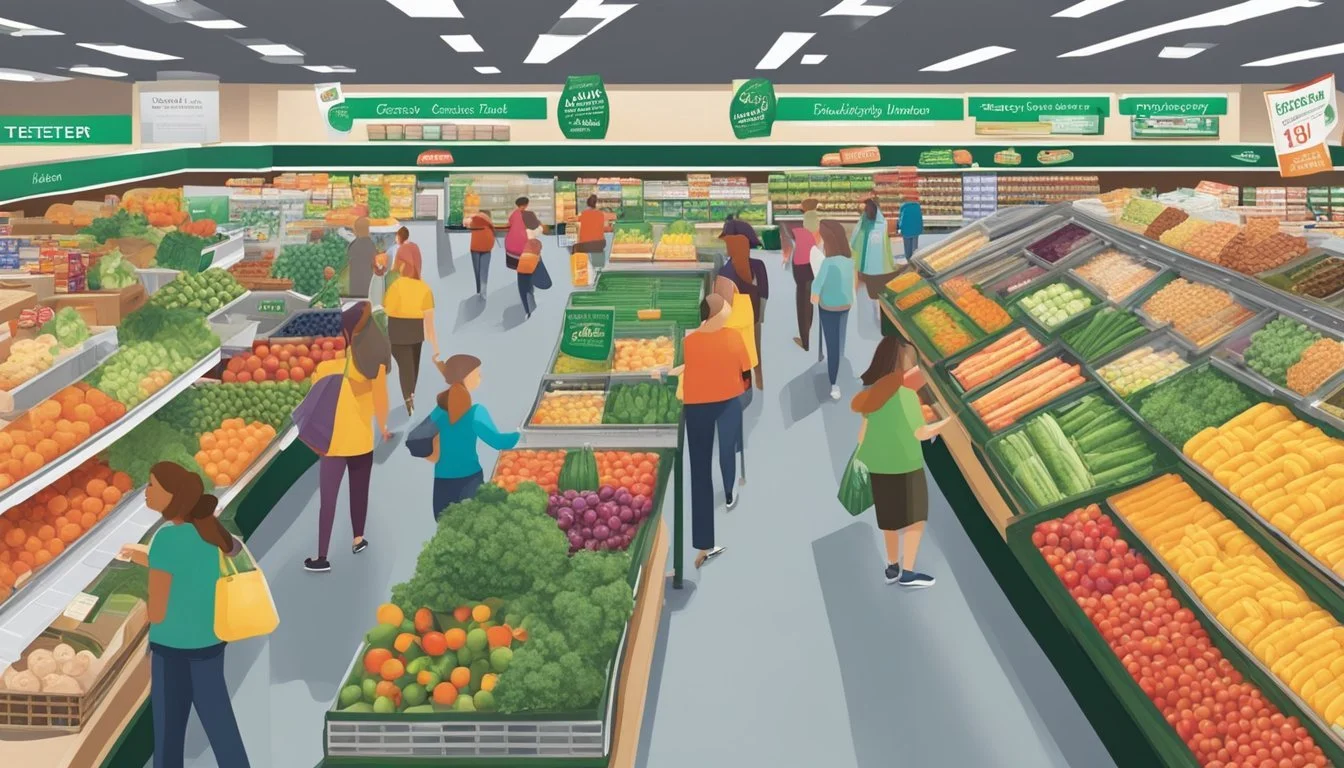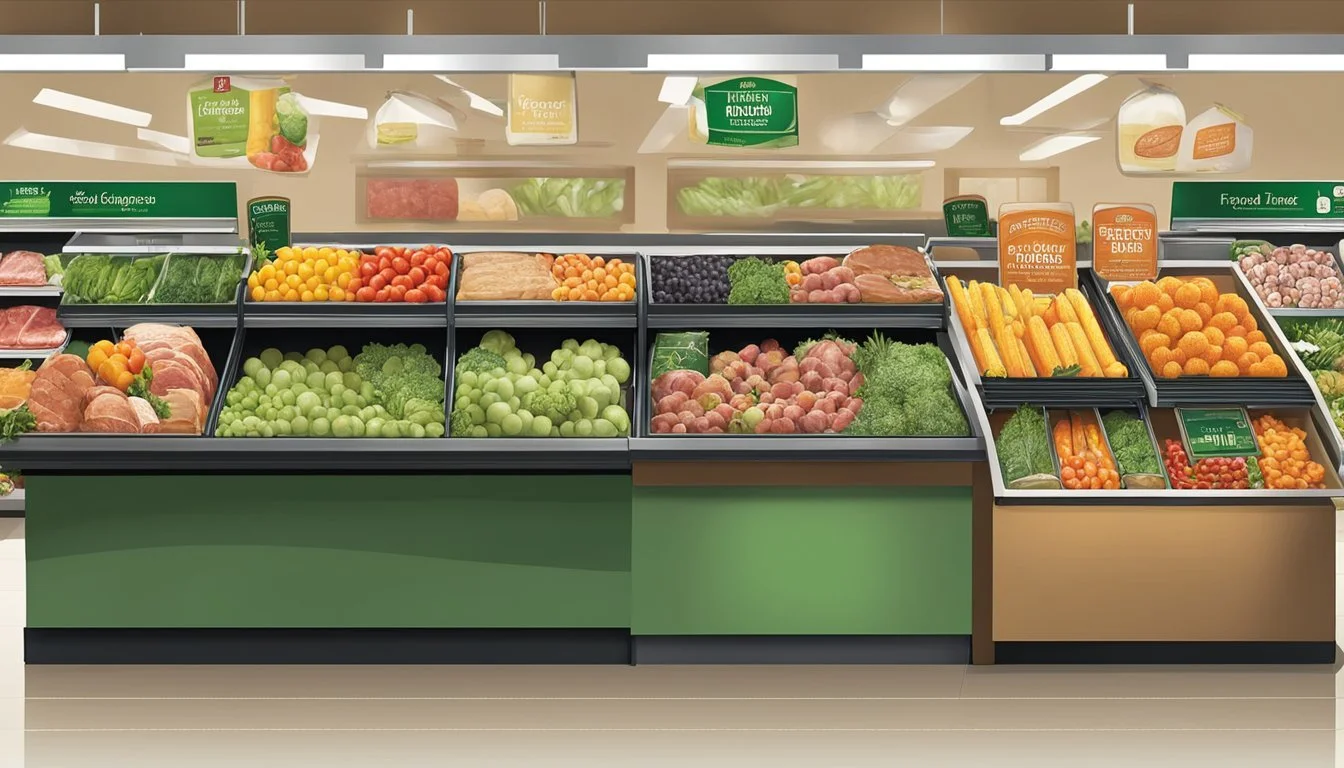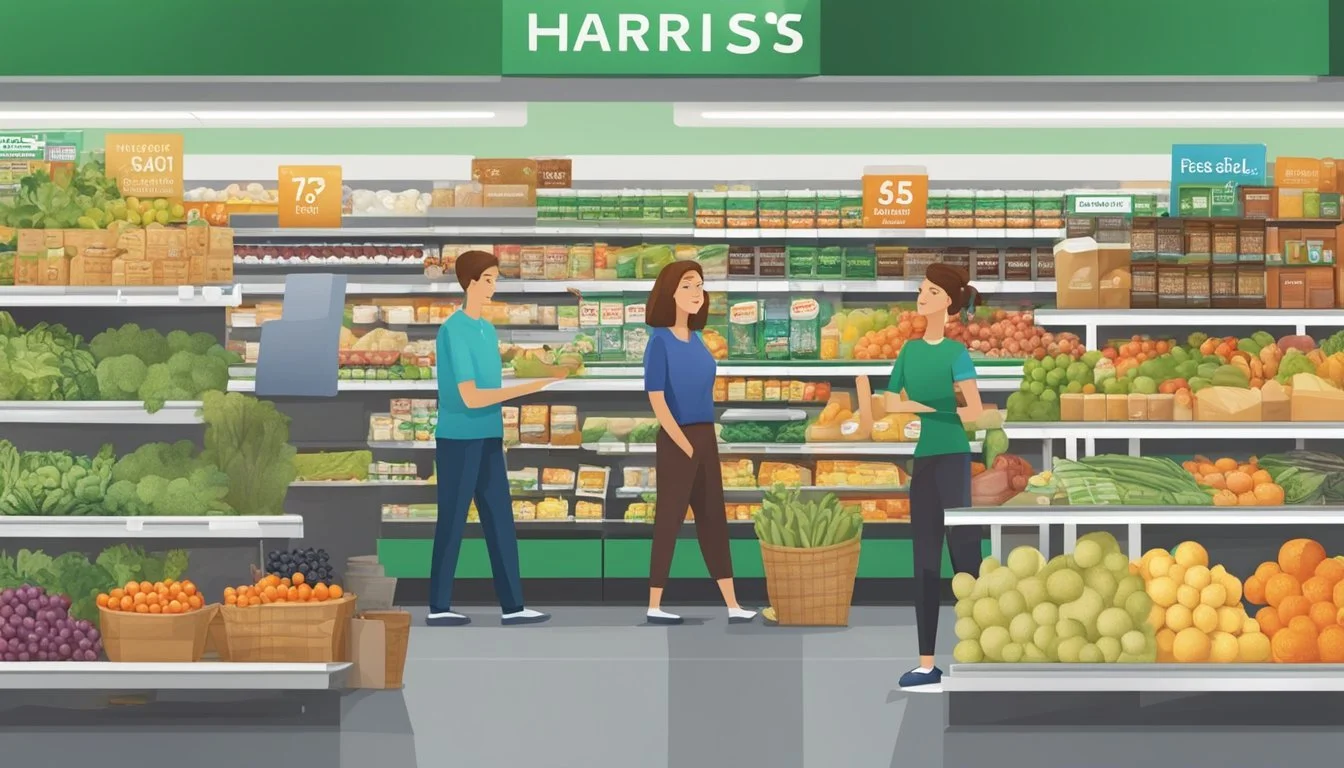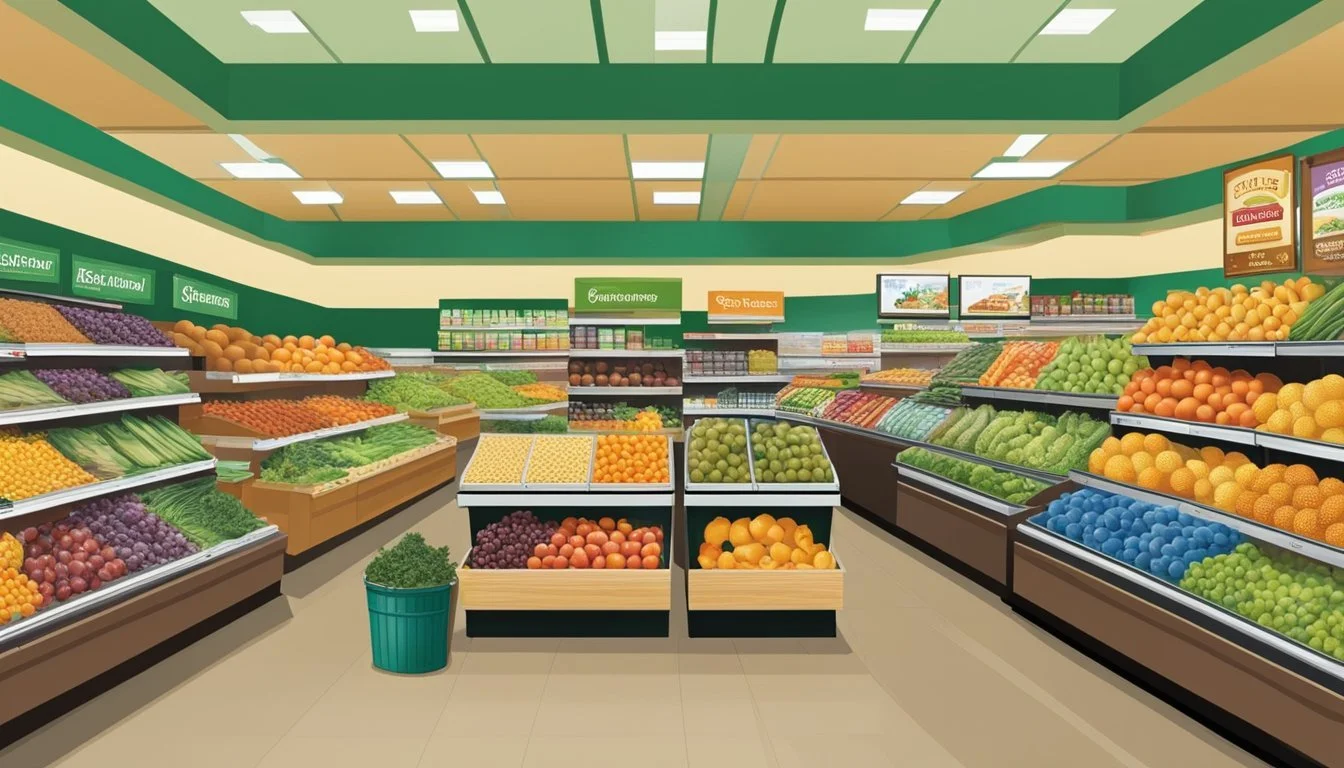Harris Teeter vs Ingles Markets
A Comprehensive Comparison of Price, Quality, and Selection
Harris Teeter and Ingles Markets are two prominent grocery store chains serving customers in the southeastern United States. Both supermarkets offer a wide range of products and services, but they differ in various aspects that can influence shoppers' preferences.
When comparing overall prices, Ingles Markets tends to be slightly cheaper than Harris Teeter, particularly in the meat department. A price comparison of select items showed Ingles offering lower prices on meat products, with potential savings of $2-3 on a typical purchase. However, Harris Teeter often provides better value through larger portion sizes and frequent promotions.
Quality and selection also play crucial roles in the shopping experience. Harris Teeter is known for its superior meat and seafood departments, offering fresher cuts and a wider variety of options. Ingles Markets, while competitive in many areas, may not match Harris Teeter's standards in these particular sections. Ultimately, the choice between these two supermarkets depends on individual priorities, whether focusing on price, quality, or specific product offerings.
Company Overview
Harris Teeter and Ingles Markets are two prominent grocery store chains operating primarily on the East Coast of the United States. Both companies have rich histories and significant presences in their respective markets.
History of Harris Teeter
Harris Teeter's roots trace back to 1936 when W.T. Harris opened his first grocery store in Charlotte, North Carolina. In 1960, Harris merged with Teeter's Food Marts, creating Harris Teeter Supermarkets. The company expanded rapidly throughout the Southeast, gaining a reputation for high-quality products and customer service.
In 2014, The Kroger Co. acquired Harris Teeter, maintaining its brand identity and operations. Today, Harris Teeter is known for its upscale store formats and innovative loyalty programs. The chain continues to operate under its own name, preserving its distinct brand identity within the larger Kroger family.
History of Ingles Markets
Ingles Markets was founded in 1963 by Robert Ingle in Asheville, North Carolina. Ingle's vision was to provide customers with a one-stop shopping experience, offering both quality and value. The company grew steadily, expanding its presence across the Southeastern United States.
Ingles Markets remained a family-operated business, with Robert Ingle's son Robert Ingle II taking over as CEO in 1996. The company has focused on adapting to changing customer needs, incorporating in-store pharmacies, fuel centers, and emphasizing locally sourced products.
Store Presence and Location
Harris Teeter operates over 230 stores across seven states, primarily in the Mid-Atlantic and Southeastern regions. Its strongest presence is in North Carolina, Virginia, and South Carolina. The chain is known for its upscale store formats and tends to be located in more affluent urban and suburban areas.
Ingles Markets has a more concentrated presence, with over 200 stores across six Southeastern states. The company's core markets include North Carolina, South Carolina, Georgia, and Tennessee. Ingles typically focuses on smaller cities and rural areas, often serving as a primary grocery option in these communities.
Both chains have adapted their store locations and formats to best serve their target markets, with Harris Teeter generally maintaining a more upscale image and Ingles focusing on value and community presence.
Product Assortment and Quality
Harris Teeter and Ingles Markets offer diverse product selections with varying quality across departments. Both chains prioritize fresh offerings and store brand options, but differ in their specific strengths and focus areas.
Fresh Produce
Harris Teeter emphasizes high-quality produce with a wide variety of organic and locally-sourced options. Their stores feature extensive fruit and vegetable selections, often including specialty and seasonal items.
Ingles Markets maintains competitive produce departments with a focus on regional favorites. They source from local farms when possible, providing fresh, affordable options.
Both chains prioritize product freshness and regular rotation of stock. Harris Teeter tends to have a slight edge in organic variety, while Ingles often competes well on price for conventional produce.
Meat and Fish Selection
Harris Teeter is known for its high-quality meat department. They offer a range of premium cuts, organic options, and specialty meats. Their seafood selection includes both fresh and frozen varieties.
Ingles Markets provides a solid meat selection with competitive prices. They focus on popular cuts and family-sized packages. Their seafood offerings may be more limited compared to Harris Teeter.
Both chains maintain in-store butchers for custom cuts and expert advice. Harris Teeter typically offers more variety in specialty and gourmet meats, while Ingles emphasizes value and everyday essentials.
Store Brand Offerings
Harris Teeter's private label products span a wide range of categories. Their store brand focuses on quality at competitive prices, often matching or exceeding national brands in taste and ingredients.
Ingles Markets offers the "Laura Lynn" store brand, covering essential grocery items. These products provide budget-friendly alternatives across various departments.
Both chains continue to expand their store brand lines. Harris Teeter tends to offer more premium and organic store brand options, while Ingles focuses on everyday staples and value.
Prepared Foods and Bakery
Harris Teeter excels in prepared foods, offering hot and cold options for quick meals. Their bakery departments produce a variety of fresh breads, pastries, and custom cakes.
Ingles Markets provides a selection of ready-to-eat items and a bakery focused on traditional favorites. Their offerings may be more limited compared to Harris Teeter but still cater to common customer needs.
Both chains emphasize freshness in their prepared foods and baked goods. Harris Teeter typically offers a broader range of gourmet and specialty items, while Ingles focuses on classic comfort foods and staple bakery items.
Pricing and Savings Opportunities
Harris Teeter and Ingles Markets offer competitive pricing and various ways for customers to save money on groceries. Both chains provide discounts, loyalty programs, and promotional offers to help shoppers stretch their budgets.
Comparison of Everyday Prices
Harris Teeter tends to have slightly higher everyday prices compared to Ingles Markets. A sample comparison of 4 meat items showed Ingles was $2.21 cheaper than Harris Teeter, with a total of $23.69 versus $25.90.
However, Harris Teeter offered more chicken by weight, providing better value despite the higher price. For staple items and produce, prices can vary between the two stores.
Ingles Markets often has lower prices on store-brand products. Both chains run weekly specials on popular items to attract customers.
Discounts and Coupons
Harris Teeter and Ingles Markets accept manufacturer coupons and offer digital coupons through their mobile apps. Harris Teeter is known for its "Super Double Coupons" events, where they double the value of coupons up to $2.
Ingles Markets frequently provides "10 for $10" deals on select items. Both stores offer senior discounts on certain days of the week.
Harris Teeter allows coupon stacking, letting customers combine manufacturer and store coupons for greater savings. Ingles Markets offers "Ingles Advantage Savings" with exclusive discounts for loyalty card holders.
Loyalty Programs and Savings
Harris Teeter's VIC (Very Important Customer) Program offers personalized discounts and fuel points. Members earn 1 point per dollar spent, with 100 points equaling 10 cents off per gallon at participating gas stations.
Ingles Markets' Ingles Advantage Card provides similar benefits, including personalized coupons and fuel rewards. Cardholders can save up to $1 per gallon on fuel purchases.
Both programs offer e-coupons loaded directly to the loyalty card. Harris Teeter's program includes "yourpoints," where customers earn points for specific purchases to redeem for free or discounted items.
Shopping Experience
Harris Teeter and Ingles Markets offer distinct shopping experiences. Each store has its own approach to layout, customer service, and online options.
Store Layout and Design
Harris Teeter stores typically feature a clean, upscale aesthetic. Aisles are wide and well-lit, with clear signage. The produce section is often near the entrance, showcasing fresh fruits and vegetables.
Ingles Markets has a more traditional supermarket layout. Their stores tend to be spacious, with departments arranged in a familiar pattern. Many Ingles locations include additional services like pharmacies and fuel centers.
Both chains prioritize product visibility and ease of navigation. However, Harris Teeter's design often feels more modern and polished compared to Ingles' practical approach.
Customer Service and Checkout Efficiency
Harris Teeter is known for its emphasis on customer service. Staff members are generally well-trained and attentive. The chain often employs baggers to assist at checkout, speeding up the process.
Ingles Markets also values customer service but may have fewer staff members visible on the floor. Checkout efficiency can vary between locations, with some stores offering self-checkout options.
Both chains aim to minimize wait times, but Harris Teeter's focus on service often results in a smoother checkout experience. During peak hours, Ingles may experience longer lines.
Online Shopping and Delivery Options
Harris Teeter offers a robust online shopping platform. Customers can order groceries for pickup or delivery through their website or mobile app. The service is user-friendly and integrates with their loyalty program.
Ingles Markets has been expanding its online presence. They provide online ordering with curbside pickup at many locations. However, their delivery options may be more limited compared to Harris Teeter.
Both stores have embraced digital technology, but Harris Teeter currently offers a more comprehensive online shopping experience. Ingles is working to close this gap as demand for e-commerce grocery services grows.
Consumer Perception and Brand Reputation
Harris Teeter and Ingles Markets have distinct reputations in the grocery industry, shaped by customer experiences, product offerings, and market positioning. Both chains face competition from national retailers while striving to maintain loyal regional followings.
Customer Satisfaction and Ratings
Harris Teeter consistently receives high marks for customer satisfaction. Shoppers appreciate the chain's clean stores, friendly staff, and quality products. In contrast, Ingles Markets garners mixed reviews. Some customers praise Ingles' competitive prices and local product selection, while others note inconsistent experiences across locations.
A recent survey found Harris Teeter outperforming Ingles in overall customer satisfaction by 8%. However, Ingles scored higher in the affordability category, appealing to budget-conscious shoppers.
Healthy and Ethical Choices
Both chains have responded to growing consumer demand for healthy and ethically sourced products. Harris Teeter has expanded its organic offerings and launched a "HT Organics" private label. The chain also partners with local farmers to provide fresh, seasonal produce.
Ingles Markets emphasizes its commitment to supporting regional producers. The company sources many products from local farms and artisans, appealing to customers who prioritize buying local. Ingles has also increased its selection of organic and natural foods, though not as extensively as Harris Teeter.
Public Perception and Market Position
Harris Teeter is often viewed as a premium grocery option, competing with national chains like Whole Foods and regional players such as Publix. The brand's association with quality and customer service allows it to maintain slightly higher prices than some competitors.
Ingles Markets positions itself as a value-oriented regional grocer. The company competes more directly with national discount chains like Walmart and regional stores such as Food Lion. This strategy has helped Ingles retain market share in its core operating areas, particularly in smaller towns and rural communities.
Both chains face increasing pressure from e-commerce giants like Amazon and the expansion of Target's grocery offerings. Harris Teeter has responded by enhancing its online ordering and delivery services, while Ingles continues to focus on its physical store experience and community connections.
Competitive Analysis
Harris Teeter and Ingles Markets face stiff competition in the grocery industry. Both chains must differentiate themselves to attract and retain customers in a crowded marketplace.
Market Competitors
Kroger and Food Lion are major rivals for Harris Teeter and Ingles Markets. Walmart also poses a significant threat with its low prices and extensive reach. Publix competes strongly in the Southeast, known for customer service and quality products.
Whole Foods targets health-conscious shoppers, while Aldi and Lidl appeal to budget-minded consumers. Regional chains like Wegmans and Publix have loyal followings in their respective markets.
Costco and Sam's Club compete indirectly through bulk sales and low prices. Online grocery options from Amazon and Walmart add another layer of competition.
Advantages Over Other Grocery Chains
Harris Teeter emphasizes fresh produce and prepared foods. Its upscale store design and customer service set it apart from discount chains. The company offers a popular loyalty program and fuel points.
Ingles Markets focuses on local products and competitive pricing. Its in-store pharmacies and fuel centers provide added convenience. The chain's strong presence in rural areas gives it an edge in certain markets.
Both chains prioritize community involvement, which builds customer loyalty. Their regional focus allows for tailored product selections and marketing strategies.
Niche Market Focus
Harris Teeter targets middle to upper-income shoppers with its premium offerings and store ambiance. The chain excels in urban and suburban locations, appealing to busy professionals and families.
Ingles Markets caters to rural and small-town customers. Its stores often serve as community hubs, offering a wide range of products beyond groceries. The company emphasizes affordability without sacrificing quality.
Both chains have adapted to health trends by expanding organic and natural food selections. They also offer prepared meals and grab-and-go options to compete with restaurants and meal delivery services.






